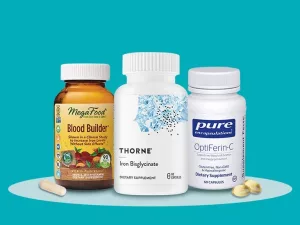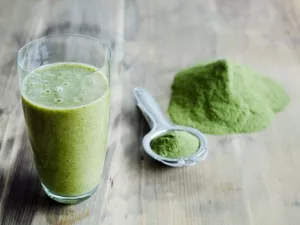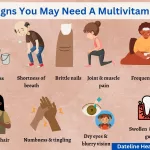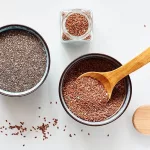Beta carotene is vital for overall health, and consuming plenty of fresh fruits and vegetables is the most effective way to include it in your diet.
As a plant pigment, beta carotene gives many red, orange, and yellow vegetables their bright hues. It is classified as a provitamin A carotenoid, which means the body can convert it into vitamin A (retinol).
Additionally, beta carotene acts as a potent antioxidant.
The term stems from the Latin word for carrot. Beta carotene was first isolated by Heinrich Wilhelm Ferdinand Wackenroder, who crystallized it from carrots in 1831.
This article examines:
- the advantages of beta carotene
- which foods supply it
- how much the body requires
- possible hazards linked to beta carotene supplements
What are the benefits?
Beyond serving as a dietary source of provitamin A, beta carotene works as an antioxidant.
Antioxidants are substances that neutralize unstable molecules known as free radicals. When free radicals accumulate excessively, they cause an imbalance that damages cells and tissues, referred to as oxidative stress.
Oxidative stress contributes to the onset of certain chronic illnesses. Antioxidants such as beta carotene help lower or prevent oxidative stress in the body.
Numerous studies indicate that antioxidant-rich diets can support health.
By decreasing oxidative stress, antioxidants may help shield against conditions like:
- certain types of cancer
- cardiovascular disease
- cognitive disorders such as Alzheimer’s disease
Research has associated consumption of beta carotene–rich foods and, separately, beta carotene supplementation with the following potential health effects:
Improved cognitive function
Some studies suggest beta carotene may support cognitive abilities, likely through its antioxidant activity.
A 2018 Cochrane review that considered eight studies focusing on antioxidants, including beta carotene, reported modest improvements in cognitive performance and memory linked to beta carotene supplementation.
Note that cognitive gains were reported only with long-term supplementation, averaging about 18 years.
Researchers found no meaningful short-term impact and concluded that further investigation is necessary.
The potential of beta carotene supplements to support cognitive health requires more research.
Still, evidence supports that eating fruits and vegetables overall, including those high in beta carotene, may lower the risk of cognitive decline and dementia-related conditions.
Skin health support
Beta carotene may also help maintain healthier skin, again likely due to its antioxidant properties.
A review indicates adequate intake of antioxidant micronutrients, including beta carotene, can strengthen the skin’s defenses against UV damage and help preserve skin health and appearance.
However, the researchers emphasize that dietary beta carotene offers significantly less sun protection than using topical sunscreen.
Lung health
Findings on beta carotene’s effects on lung health are mixed.
Vitamin A, produced from beta carotene in the body, helps maintain normal lung function.
Moreover, people who consume ample beta carotene–containing foods may have a reduced risk of some cancers, including lung cancer.
A 2017 study of over 2,500 participants suggested that diets rich in carotenoid-containing fruits and vegetables, such as those with beta carotene, were associated with a protective effect against lung cancer.
That said, trials have not demonstrated that supplements provide the same protection as eating whole vegetables.
In fact, beta carotene supplements could increase lung cancer risk among people who smoke.
Eye health
Diets high in carotenoids like beta carotene may support eye health and guard against eye conditions such as age-related macular degeneration (AMD), which can impair vision.
Research has shown that higher blood levels of carotenoids — including beta carotene — may lower the likelihood of developing advanced AMD by up to 35 percent.
Additionally, studies indicate that diets rich in beta carotene–containing fruits and vegetables may be especially effective at reducing AMD risk in smokers.
Read about 8 nutrients that can improve your eye health here.
May lower the risk of certain cancers
Evidence suggests diets abundant in antioxidant-rich foods like those containing beta carotene may help lower the risk of developing some cancers.
This includes:
Overall, health professionals usually recommend consuming a diet rich in fruits and vegetables — which supply vitamins, minerals, and plant compounds that act together to support health — rather than relying on beta carotene supplements.
SummaryBeta carotene is a strong antioxidant that may support brain, skin, lung, and eye health. Obtaining it from food is likely a safer and healthier option than taking beta carotene supplements.
Foods rich in beta carotene
Beta carotene is abundant in fruits and vegetables that are red, orange, or yellow.
Don’t avoid dark leafy greens or other green vegetables, though, as they also contain meaningful amounts of this antioxidant.
Some research suggests cooked carrots supply more carotenoids than raw ones. Adding olive oil can further increase carotenoid bioavailability.

Beta carotene is fat-soluble, so consuming it with dietary fat improves absorption.
The top food sources of beta carotene include:
- dark leafy greens like kale and spinach
- sweet potatoes
- carrots
- broccoli
- butternut squash
- cantaloupe
- red and yellow bell peppers
- apricots
- broccoli
- peas
- romaine lettuce
Beta carotene is also present in herbs and spices such as:
- paprika
- cayenne
- chili powder
- parsley
- cilantro
- marjoram
- sage
- coriander
For context, the United States Department of Agriculture (USDA) database provides these examples of beta carotene content:
- 100 grams of cooked carrots supplies approximately of beta carotene.
- 100 grams of cooked spinach without added fat provides about of beta carotene.
- 100 grams of boiled sweet potato contains of beta carotene.
Combining these items, herbs, and spices with a healthy fat — such as olive oil, avocado, or nuts and seeds — can enhance absorption.
Read about other herbs and spices with potent health benefits here.
SummaryCarrots, sweet potatoes, and dark leafy greens rank among the best sources of beta carotene. Adding a little oil helps your body absorb the nutrient more effectively.
How much beta carotene should you take?
Most people can obtain sufficient beta carotene from foods as long as they eat a variety of vegetables, eliminating the need for supplements.
There is no separate recommended daily allowance (RDA) for beta carotene; it is included within the RDA for vitamin A.
Because both preformed vitamin A and provitamin A carotenoids are present in foods, vitamin A recommendations are expressed as Retinol Activity Equivalents (RAE).
This accounts for differences between preformed vitamin A (from animal foods and supplements) and provitamin A carotenoids like beta carotene.
According to the guidelines, adult women should aim for 700 mcg RAE per day, while adult men need 900 mcg RAE per day.
Pregnant and breastfeeding women require about 770 mcg RAE and 1,300 mcg RAE, respectively.
Although a tolerable upper intake level (UL) exists for preformed vitamin A, there is no UL established for provitamin A carotenoids like beta carotene.
This is because beta carotene and related carotenoids are unlikely to cause toxicity even at higher intakes.
However, remember that beta carotene supplements can affect health differently than food sources and may have adverse effects.
The UL for preformed vitamin A is set at 3,000 mcg for both men and women, including pregnant and breastfeeding women.
If you are thinking about supplements, consult your physician about your specific needs and potential risks. Discuss any medications or lifestyle factors that could influence dosing and requirements.
SummaryAdults generally need between 700 and 900 mcg RAE of vitamin A daily. This recommendation includes both preformed vitamin A and provitamin A carotenoids like beta carotene.
Are there risks of getting too much?
According to available guidance, beta carotene supplements have not been strongly linked to major adverse effects, even at relatively high supplement intakes of 20–30 mg per day.
Consuming large amounts of carotenoid-rich foods over time is not associated with toxicity.
Extremely high dietary intake of beta carotene can lead to a harmless condition called carotenodermia, where the skin develops a yellow-orange tint.
However, people who smoke are advised to avoid beta carotene supplements.
Smokers, and possibly former smokers, should avoid beta carotene supplements and multivitamins that supply more than 100 percent of the daily value for vitamin A, whether from preformed retinol or beta carotene.
This recommendation stems from studies that linked high supplemental doses of these nutrients to an increased lung cancer risk in smokers.
It’s also important to note that high supplemental doses of any antioxidant may interfere with the absorption of other nutrients and could disrupt the body’s natural defense mechanisms.
Health professionals generally recommend a diet high in fruits and vegetables — rich in antioxidants and other essential nutrients — over taking beta carotene supplements.
SummaryBeta carotene supplements are generally safe for most people, but they may pose risks for current or former smokers. Dietary sources are usually preferred to supplementation.
The bottom line
Beta carotene is a valuable dietary compound and an important source of vitamin A. Research links beta carotene intake to several health benefits.
Eating a variety of fruits and vegetables is the best approach to increase beta carotene intake and support disease prevention.
Speak with your doctor or a registered dietitian about personalized strategies to boost your beta carotene consumption.
Always consult a healthcare professional before starting any supplement to ensure it is appropriate and safe for your circumstances.

























Leave a Reply
You must be logged in to post a comment.